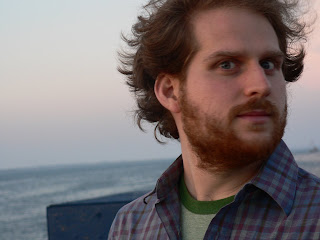During this last quiet week in Sudbury Mass I went to a whopping two movies in the theater: "The Invasion" and "Sunshine." Sunshine is probably the easier to talk about, and was quite instructive in gaining a better handle on the pros and cons of a certain strand of wonderment sci-fi--think of 2001. I never had much use for 2001, particularly its clammy psychedelic vista of eternity as played by Lullabies from the Womb, but now I see what happens when you replace hermetic Kubrickisms with a ecstatic drenched quality typical of Danny Boyle: still the snag of Plot. Like Boyle's previous movies with Alex Garland a stately aura in the first few acts degenerates into Mansonland for the climax where the secret chthonic truth of heroism as a death cult wraps up the thesis. It's a tight but fairly conservative attitude as hippie peace leads to an open field leads to violence: Antonioni (Vive le!) deposed by Charles Manson.
Still, the violence here falls under the shakiest category of the movie, a gambit of "alone-in-the-universe-I-am-the-mad-king" seen previously in most sci-fi thrillers like Walter Hill's disavowed "Supernova" or "Event Horizon" to justify bloodlust for no good reason besides 'is that what people want?' Hollywood executivism. In other words, we have another chapter in the endless story of not trusting the image. And what stays with me, days later, from "Sunshine" is images and only images: Mercury seen from a near orbit, or the sun through filters as a giant, broiling orb. To see is to scorch: shades of Phoebus wanting to see the true image, or Icarus. And of the essentially suicidal nature of this mission to save the solar system, flying purposively into the sun. It has not been lost on many reviewers that there are shades of "Armageddon" here--plucky humans save the world through outer space know-how--but patriotism has been replaced with a kind of existentialist aestheticism. It is and it deserves to be because it is beautiful, which is what's best about art I suppose always.
Of course, then, the movie is also an allegory for movies, which is always interesting to see in movies: sitting in the dark hoping to see something gorgeously beautiful and dangerous. In any case it far transcends whatever broken idyll structure we might impose upon it.
The other movie I saw, interesting for entirely other self-conscious reasons, was "The Invasion," famously the subject of intensive re-shoots and re-imaginings that transformed an early cut perhaps based on claustrophobia and distrust into a schizophrenic movie that has no patience even for cause and effect (the editors in an attempt to shave blood from the stone of the film's running time, jumble up even something so simple as saying goodbye and getting into a car so that we have the whole rest of the movie seemingly happening at once). The strangely central image of the movie is of the muffler of a car, leaching condensation and exhaust.
It wasn't, in any case, possibly to describe this as a good movie per se, but it was fascinating watching something so utterly hybridized as a narrative, the stitches so obvious, and scars of editing so raw. I was almost made to think of it as an objectivist experiment in the undermining of story. A few critics snarked that the movie itself was the pod person sucked clear of personality, but it brought more to my mind images from John Carpenter's "They Live," where the magical sunglasses show you the truth behind ideology, the stories of capital as an alien with no skin.
And still there is personality here, even if it is a clash of middlebrow ideas--fascism begins at home versus technology as the saving grace from technology. The movie stayed with me a little like a cento or a found poem project reminiscent of Ronald Johnson's "Radi Os" which I was looking again at excerpts of when I found his out-of-print selected poems TO DO AS ADAM DID in Grolier Bookshop in Cambridge this week, an extremely happy find. It's interesting how Johnson's technique, whiting out his way through Milton, oscillates between trick and miracle, whispering the secret ecstatically and then being spoken past. You can hear through it but also hear it in and of itself. That is of course the brilliant double-ness of the title swept away from Paradise Lost: we have both a radius around which we are orbiting, radios tuning into the frequency of the transmission, and the radiant light-giving image somewhere close by of whatever sun is shedding light on this. So little saying so much.
Farrah claimed that our cat (living indoors with no experience of other cats and quite indifferent to the minks, deer, hedgehogs, chipmunks, dragonflies and goldfinches trotting past the windows here in the Sudbury woods) sees only us as giant leonine cats. I imagined a machine to generate the experience of voices interpretable by the technology of his little feline ears. Big lionish sounds, their cadence and melodies, murmuring and tintinnabulations. We can understand emotions behind language even with the words blotted sonically out. In "Sunshine" the possessed keep demanding less filters, turn up the sun.
Friday, August 31, 2007
Subscribe to:
Post Comments (Atom)

No comments:
Post a Comment